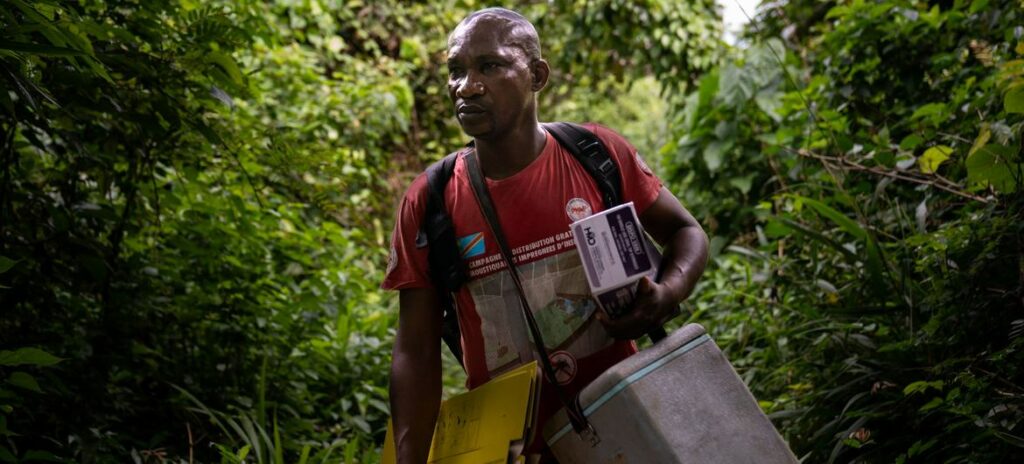With 35 confirmed cases and 27 deaths, the Kasaï province in southwestern Democratic Republic of Congo (DRC) is experiencing a peak in the Ebola virus epidemic. On Sunday, September 14, a vaccination campaign began in the region.
According to the Institut Pasteur, the Ebola virus—responsible for severe fevers and hemorrhages—has a fatality rate ranging from 30% to 90% depending on the outbreak and the viral strain. In the DRC’s case, the most virulent strain, known as Zaire Ebolavirus, is driving the epidemic. To combat it, the World Health Organization (WHO) has sent more than 2,000 doses of the Ervebo vaccine—effective against this type of virus—to the Congolese capital, Kinshasa, which has already delivered over 350 doses to the city of Bulape, at the heart of the hardest-hit area.
Organized assistance
As part of a ring vaccination strategy, the first 400 vaccine doses are being administered as a priority to those most at risk of infection after contact with a confirmed Ebola patient, such as healthcare professionals and frontline workers.
To expand vaccination coverage, the WHO and the United Nations Children’s Fund (UNICEF) have supported health authorities in requesting additional doses, trained them in data collection, and assisted in developing a vaccination plan for the distribution of doses.
The International Coordinating Group for Vaccine Provision has approved the shipment of around 45,000 additional doses to the DRC as part of the current outbreak response. In addition to vaccines, monoclonal antibody treatments have also been sent to Bulape treatment centers for clinical care.
A large-scale operation
On the ground, the WHO has so far deployed 48 experts in disease surveillance, clinical care, infection prevention and control, logistics, and community engagement. Together with partner organizations, they are helping the government to rapidly strengthen epidemic response measures in order to contain the spread of the virus.
Given the severity of the virus, the WHO is also active in the DRC’s neighboring countries. It is working with national authorities to boost operational preparedness for the rapid detection of cases and the immediate implementation of measures to curb the virus’s spread.
The WHO estimates that the overall public health risk posed by the current outbreak is high at the national level, moderate at the regional level, and low at the global level.
Source : NATIONS Infos







OTHER ARTICLES
Editorial — Prevent, inform, and act for women’s health in Africa
Kenya : Government Prioritises Maternal Health and Strengthens Support for Community Health Promoters
Strengthening pandemic prevention, preparedness, and response capacities in Senegal using the “One Health” approach